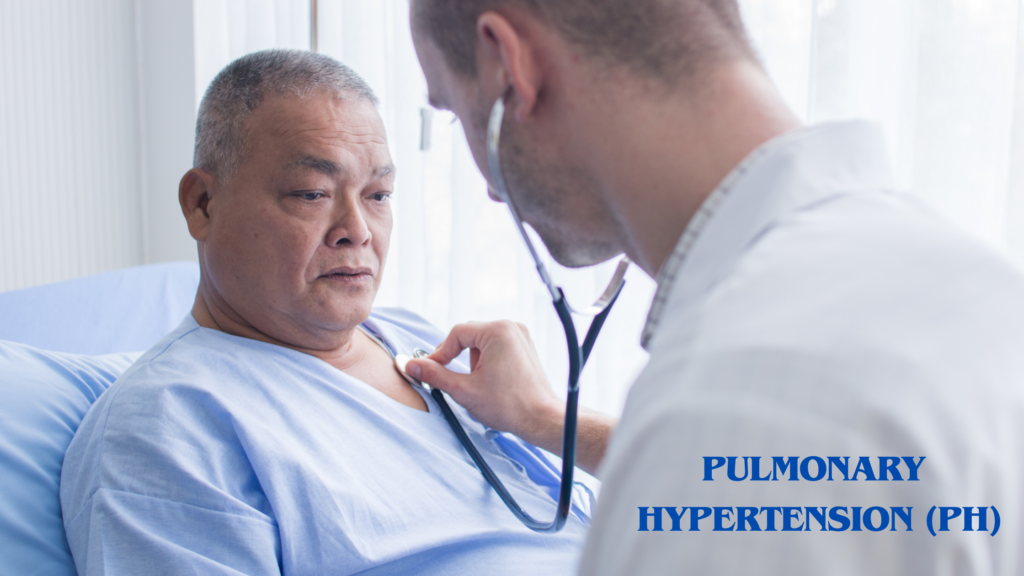🫀 Pulmonary Hypertension (PH) – Overview
Pulmonary hypertension is a condition where the blood pressure in the pulmonary arteries (the vessels that carry blood from the heart to the lungs) is abnormally high. This puts strain on the right side of the heart, which can eventually lead to heart failure.
🏷️ Types of Pulmonary Hypertension
| Group | Cause/Type | Description |
|---|---|---|
| 1 | Pulmonary arterial hypertension (PAH) | Idiopathic, heritable, drug-induced, associated with diseases (e.g., connective tissue disorders) |
| 2 | PH due to left heart disease | Caused by problems like left heart failure or valve disease |
| 3 | PH due to lung diseases or hypoxia | COPD, interstitial lung disease, sleep apnea |
| 4 | Chronic thromboembolic PH (CTEPH) | Caused by chronic blood clots in lungs |
| 5 | PH with unclear or multifactorial mechanisms | Various other causes |
📋 Symptoms
- Shortness of breath, especially during activity
- Fatigue
- Chest pain or pressure
- Palpitations
- Swelling in ankles, legs, or abdomen (due to right heart strain)
- Dizziness or fainting spells (syncope)
- Cough, sometimes with blood-tinged sputum
🩺 Diagnosis
- Echocardiogram (ultrasound of the heart) — estimates pulmonary artery pressure and right heart function
- Right heart catheterization — definitive test to measure pressures directly
- Chest X-ray and CT scan — assess lung diseases and heart size
- Pulmonary function tests — evaluate underlying lung conditions
- Blood tests — to look for underlying causes or related diseases
- 6-minute walk test — assesses exercise capacity and severity
💊 Treatment
- Address underlying causes (e.g., treat lung disease, heart failure, or remove clots)
- Medications specific for PAH include:
- Endothelin receptor antagonists (e.g., bosentan)
- Phosphodiesterase-5 inhibitors (e.g., sildenafil)
- Prostacyclin analogs (e.g., epoprostenol)
- Diuretics (to reduce fluid buildup)
- Oxygen therapy (if low oxygen levels)
- Anticoagulants (if risk of clots)
- Lifestyle changes: low-sodium diet, moderate exercise
- Lung or heart-lung transplant in advanced cases
⚠️ Complications
- Right-sided heart failure (cor pulmonale)
- Arrhythmias
- Reduced quality of life and exercise intolerance
- Increased risk of death if untreated
🛡️ Prevention
- Early detection and treatment of lung and heart diseases
- Avoiding high altitude or smoking if susceptible
- Managing risk factors (e.g., sleep apnea, blood clots)
